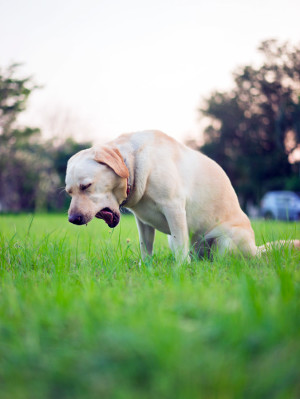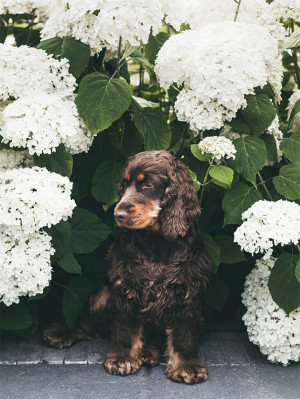How to Spot if Your Dog Has Ingested Cannabis as RSPCA Issues Warning
The charity has seen an influx of marijuana poisoning cases in recent years
In this article:
What to do if your dog has weed Symptoms of cannabis consumption in dogs Treatment for marijuana poisoning in dogs
In recent years, the RSPCA has noticed a concerning trend: an increase in cases of marijuana poisoning in dogs. While cannabis remains illegal for recreational use in the UK, incidents involving pets inadvertently consuming the substance are on the rise.
Understanding how dogs might come across cannabis, what happens if they ingest it and how to recognise the signs of poisoning is crucial for every pet parent in order for them to take timely action. Here’s everything you need to know about keeping your canine companion safe from chowing down the occasional joint.
Figures from the Veterinary Poisons Information Serviceopens in new tab (VPIS) suggest more than 450 dogs have been treated for cannabis poisoning in the UK over the past four years, prompting the RSPCAopens in new tab to issue a warning to pet parents across the UK. According to the charity, cases have been gradually on the rise in recent years, with many dogs requiring urgent veterinary attention after consuming the drug accidentally.
The RSPCA is urging pet parents to be vigilant and take proactive measures to prevent their dogs from accessing cannabis and other toxic substancesopens in new tab. The charity emphasises the importance of seeking veterinary advice if there are suspicions of poisoning, as prompt intervention can significantly improve your dog’s prognosis.
Instances of marijuana poisoning in pets are not unique to the UK. Similar growing trends have been seen in other countries where cannabis has been legalised or decriminalised, too. However, the increase in cases serves as a reminder that even in regions where cannabis remains illegal, pets are still at risk of exposure.
Where are dogs finding cannabis?
Despite its legal status, cannabis can still be found in various forms, posing a risk to curious pets. Dogs may inadvertently ingest cannabis through discarded joints, lumps of hash or edibles, such as gummies (cannabis-infused sweets) or brownies, anywhere on their daily walk, from the pavement to the park. The smell and taste of cannabis can attract dogs, leading them to consume the substance without understanding the potential consequences. (Who wouldn’t want to snack on a free brownie?)
Less likely, but still a risk for your pup, is taking in cannabis through inhalation. It’s unlikely your pup will be taking turns playing pass the blunt but much like cigarette smoke, if they’re in close proximity to someone smoking cannabis – in particular indoors with limited ventilation – it can cause harm, and they can still feel the effects of the drug.
A spokesperson for the RSPCA says, “Dogs can be very motivated to eat food they find on the ground. To help prevent poisoning we would advise that dog owners make sure their dogs have a good recall so they can be called back should you have any concerns about what they are approaching.” The RSPCA also suggests teaching your dog to ‘leave’ or ‘drop’ cue so that your pup will willingly give up anything that they find on the ground, be it cannabis or a sharp chicken bone.
What to do if your dog ingests cannabis
Marijuana (also known as dope, pot, weed or cannabis) comprises dried leaves and flowers derived from the hemp plant (Cannabis sativa), and hash refers to the resin of the same plant. Both contain the chemical tetrahydrocannabinol (THC) but hash is known to be more potent, with higher levels of THC. Marijuana toxicity, also known as cannabis or THC poisoning, arises from the ingestion or inhalation of THC, presenting potential toxicity in dogs, particularly in elevated amounts.
Upon inhalation or ingestion, THC swiftly enters the bloodstream in dogs. The onset of clinical signs of cannabis consumption is rapid, particularly if inhaled (usually within 6–12 minutes), or ingested (30–90 mins), though the onset of symptoms could extend up to three hours post initial contact. Several factors dictate symptom onset, including dosage, the dog’s age and weight, and the mode of exposure (inhalation vs ingestion).
Symptoms of cannabis consumption in dogs
When a dog ingests cannabis, whether through inhalation or consumption, it can lead to a range of symptoms, varying in severity. These symptoms may include seeming ‘high’ such as lethargy, disorientation, dehydration, acting ‘dopey’ and/or being over-stimulated – although it’s worth noting that this ‘high’ is in no way similar to the high that humans would feel. In short, weed is bad for dogs, and there can also be several more severe signs of cannabis poisoning in dogs.
Signs of poisoning in dogs can manifest in various ways, depending on the substance ingested. In the case of cannabis poisoning, symptoms may include one, or several, of the following:
depression
disorientation
appearing drunk and uncoordinated
seizures
difficulty breathing
high temperature
dehydration
Figure out what they ate/inhaled
The onset and intensity of these symptoms depend on a number of factors such as the dog’s size, the amount of cannabis ingested and the potency of what your pup has eaten. The more information you are able to provide your vet, the more they will be able to help your pup; did they find a bud? Got their paws on some hash? Or a joint? Had it already been smoked? In cases of edibles, there could be the further danger of your dog ingesting Xylitol (an artificial sweetener toxic to dogs) or chocolate, so it’s really important to share as much as you can with your vet.
Speak to a vet
In cases of marijuana poisoning, immediate veterinary attention is crucial to prevent further complications and ensure the dog’s well-being. “If anyone suspects that their pet has been poisoned they should seek urgent veterinary advice,” says a spokesperson for the RSPCA.
“The dangers of a dog consuming cannabis include over-stimulation and a high temperature and they may require intravenous fluids, therefore it is vital that the dog is taken to a vet immediately for treatment,” they add. “Many different substances can poison pets so it is beneficial for pet owners to be aware of the signs of poisoning so they can ensure they take their animals to a vet immediately.”
You can also call the Animal Poison Hotlineopens in new tab (01202 509 000, £35–45 per phone call) who will be able to advise you on the next steps.
Treatment for cannabis consumption in dogs
Treatment may involve supportive care, such as intravenous fluids to prevent dehydration and medications to manage symptoms. Delayed or inadequate treatment can exacerbate the dog’s condition, potentially leading to serious health consequences.
As scary as it might seem, vets are well prepared for this sort of scenario, with the help of the VPIS, and most cases should pass fairly quickly. “The symptoms of cannabis toxicity can look very concerning but in most cases self-resolve within 12–24 hours,” says Nina Cooke, an emergency and critical care vet. “Keep your pet somewhere calm, quiet and dark after exposure [and a vet visit] to avoid further overstimulating their nervous system.”







